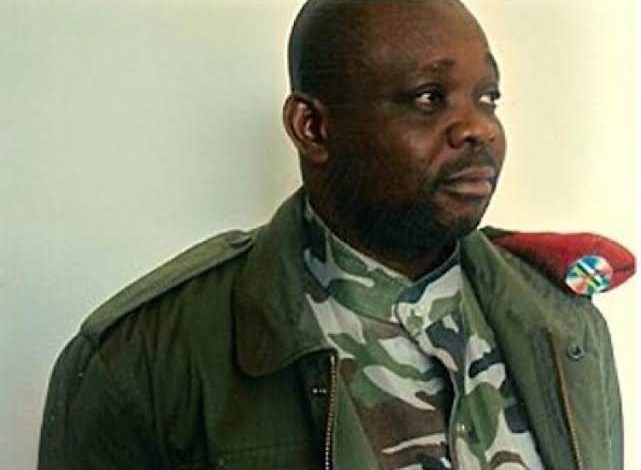UN Sanctions Rebel Leader In Central African Republic

The United Nations Security Council last night imposed sanctions on Central African Republic (CAR) rebel leader Abdoulaye Miskine, who in 2019 signed a peace agreement between the government and armed groups, the Embassy in Yaounde has just confirmed.
Miskine, founder and head of the Democratic Front of the Central African People (FDPC), was offered a government position under the February 2019 accord signed in Khartoum.
However, in the last report by U.N. experts monitoring sanctions and an arms embargo imposed in 2013, the self-proclaimed general was mentioned as looking for fighters.
Despite the signing of the agreement, Miskine “remains a threat to the peace, stability and security of the CAR,” a diplomat said.
Miskine had signed the peace agreement between CAR President Faustin-Archange Touadera and the heads of 14 armed groups.
Under the deal, militia leaders were given senior government positions in the hope of helping to cement peace. Miskine was named as an adviser to the new government but never took up his post.
In November 2019, the CAR government said Miskine had been arrested in neighboring Chad and demanded his extradition.
He has now been put under U.N. sanctions, which include an asset freeze and travel ban.
Miskine set up the FDPC in 2004 when the country first plunged into civil war and gave himself the rank of general.
He joined the coalition of mainly Muslim militias that in 2013 overthrew then-president Francois Bozize – a revolt that sparked French military intervention and the holding of elections for a successor.
Touadera’s weak government controls around a fifth of the country and relies heavily on the U.N. peacekeeping mission, MINUSCA, for support. The rest is controlled by at least 14 different militia groups who often fight each other for revenue from extortion, roadblocks or mineral resources.
The violence has abated in CAR since the Khartoum accord but fighting between rebel groups continues and the toll among civilians is still rising.
More than a quarter of the 4.7 million population of the country have fled their homes.
As at February 2020, the United Nations High Commissioner for Refugees office in Cameroon has identified 292,787 CAR who fled the conflict and who have been living mostly in the East Region of Cameroon since 2013.
Despite reserves of diamonds, gold, uranium, copper and iron, CAR remains one of the world’s poorest countries.
Most of the country is in the hands of armed groups that claim to represent religious or ethnic communities and often fight over the country’s rich mineral resources.
Support Our Journalism
There are millions of ordinary people affected by conflict in Africa whose stories are missing in the mainstream media. HumAngle is determined to tell those challenging and under-reported stories, hoping that the people impacted by these conflicts will find the safety and security they deserve.
To ensure that we continue to provide public service coverage, we have a small favour to ask you. We want you to be part of our journalistic endeavour by contributing a token to us.
Your donation will further promote a robust, free, and independent media.
Donate HereStay Closer To The Stories That Matter




